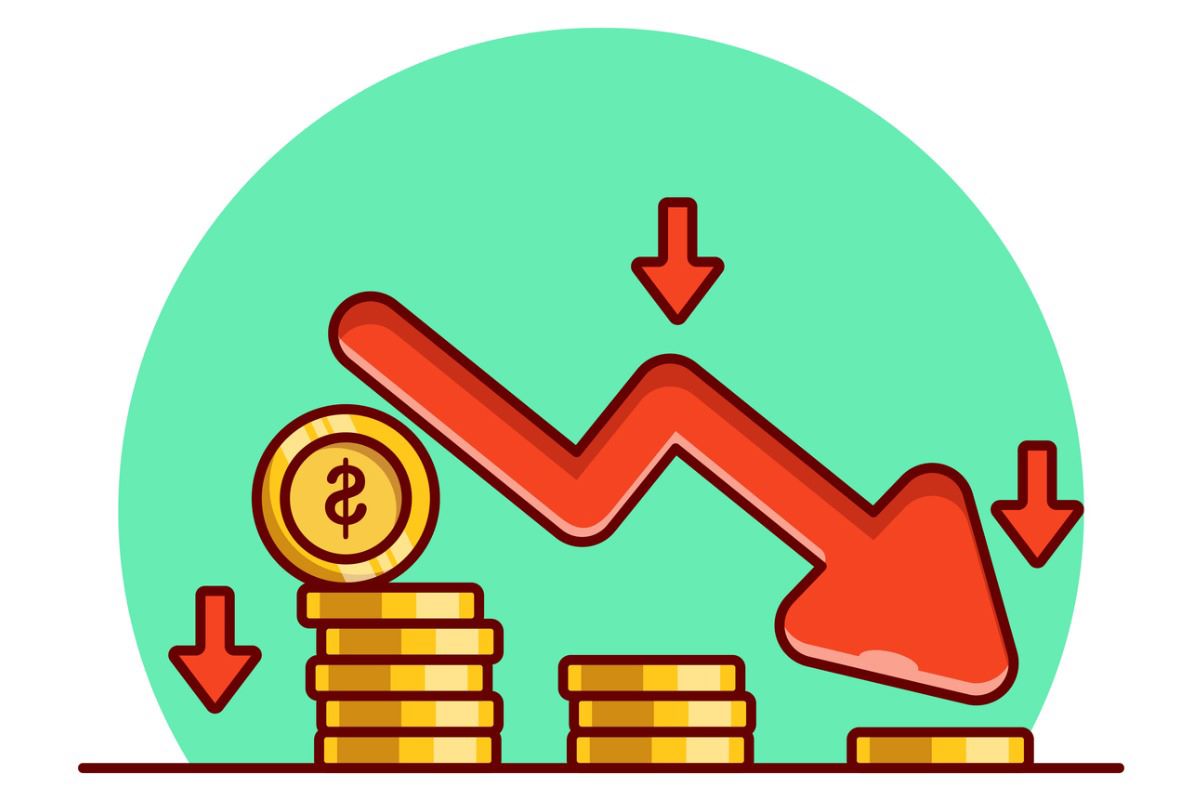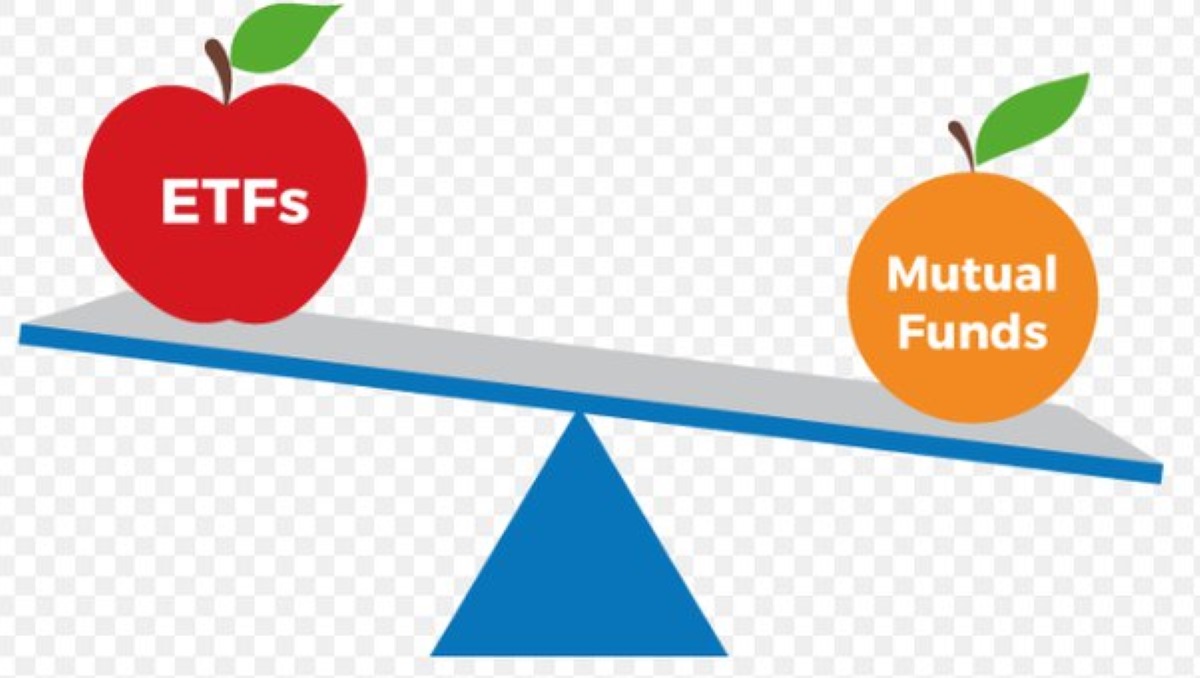Home>Finance>How Much Money Do Pension Funds Have In The Stock Market?


Finance
How Much Money Do Pension Funds Have In The Stock Market?
Published: January 23, 2024
Discover how pension funds invest in the stock market and the impact on finance. Learn about the amount of money pension funds allocate to stocks.
(Many of the links in this article redirect to a specific reviewed product. Your purchase of these products through affiliate links helps to generate commission for LiveWell, at no extra cost. Learn more)
Table of Contents
- The Importance of Pension Fund Investments in the Stock Market
- The Role of Pension Funds in the Stock Market
- Factors Affecting Pension Fund Investments in the Stock Market
- Strategies Employed by Pension Funds in Stock Market Investments
- Risks and Benefits of Pension Fund Investments in the Stock Market
- Impact of Pension Fund Investments on Stock Market Performance
- Conclusion
Introduction
The Importance of Pension Fund Investments in the Stock Market
Pension funds play a significant role in the stock market, wielding substantial influence over the allocation of capital and the performance of various securities. These funds, established to provide retirement benefits for employees, invest a portion of their assets in the stock market to generate returns and ensure the long-term sustainability of their obligations. The scale of pension fund investments in the stock market is immense, with trillions of dollars being deployed in diverse stocks, shaping the dynamics of the market and influencing corporate governance.
Pension funds are entrusted with the financial security of millions of individuals, making their investment strategies and decisions critical not only for the fund's solvency but also for the broader economy. The interplay between pension funds and the stock market is complex, as these funds seek to balance risk and return to fulfill their fiduciary duties. Understanding the dynamics of pension fund investments in the stock market is essential for investors, policymakers, and individuals planning for retirement, as it has far-reaching implications for the stability and growth of the financial markets.
Pension funds are key players in the stock market, and their investment decisions can impact the performance of individual stocks, sectors, and the overall market indices. By delving into the factors influencing pension fund investments, the strategies employed, and the risks and benefits associated with these investments, we can gain valuable insights into the intricate relationship between pension funds and the stock market. This article aims to explore the multifaceted nature of pension fund investments in the stock market, shedding light on their significance and the implications for various stakeholders.
The Role of Pension Funds in the Stock Market
Pension funds are pivotal participants in the stock market, channeling substantial capital into a diverse array of equities and influencing the dynamics of stock prices and market performance. These funds serve as long-term investors, aiming to achieve consistent returns to fund future pension obligations for employees. By allocating a portion of their assets to the stock market, pension funds contribute to the liquidity and efficiency of the market while exerting influence over corporate governance and strategic decision-making.
One of the primary roles of pension funds in the stock market is to provide a stable source of long-term capital, which can mitigate short-term market volatility. This stability is beneficial for companies seeking to raise funds through equity offerings, as it ensures a reliable investor base that is less susceptible to market fluctuations. Moreover, pension fund investments in the stock market can foster corporate accountability and governance, as these funds often engage with companies on matters such as executive compensation, board structure, and sustainability practices.
Another crucial function of pension funds in the stock market is their impact on portfolio diversification. By investing in a broad spectrum of stocks across different sectors and regions, pension funds contribute to market efficiency and reduce systemic risk. Additionally, their long-term investment horizon allows them to weather short-term market turbulence and capitalize on opportunities that may not align with the strategies of short-term traders or speculators.
Furthermore, pension funds play a role in shaping market trends and valuations, as their investment decisions reflect their outlook on the economy, industry sectors, and individual companies. The sheer size of pension fund assets means that their buying and selling activities can significantly influence stock prices, particularly in companies where they hold substantial stakes. This influence underscores the importance of understanding pension fund investment strategies and their implications for stock market dynamics.
Overall, pension funds are integral to the functioning of the stock market, providing stability, fostering corporate governance, promoting diversification, and influencing market trends. By embracing a long-term perspective and engaging with companies as influential shareholders, pension funds contribute to the sustainable growth and resilience of the stock market.
Factors Affecting Pension Fund Investments in the Stock Market
Several key factors influence the investment decisions of pension funds in the stock market, shaping their asset allocation strategies and risk management practices. Understanding these factors is essential for comprehending the dynamics of pension fund investments and their impact on the broader stock market landscape.
Economic Conditions
The prevailing economic environment significantly impacts pension fund investments in the stock market. Factors such as interest rates, inflation, and GDP growth influence the risk-return tradeoff for pension funds. In a low-interest-rate environment, pension funds may tilt towards equities to seek higher returns, whereas during periods of economic uncertainty, they might adopt a more defensive stance, favoring stable dividend-paying stocks or defensive sectors.
Regulatory Framework
Regulatory policies and guidelines play a crucial role in shaping pension fund investments in the stock market. Compliance with regulatory requirements, such as investment diversification rules, liquidity constraints, and fiduciary responsibilities, influences the asset allocation decisions of pension funds. Moreover, changes in pension fund regulations can impact their risk appetite and investment horizon, thereby affecting their participation in the stock market.
Risk Tolerance and Liability Matching
Pension funds’ risk tolerance and liability matching considerations are pivotal in determining their stock market investments. Funds with a higher risk tolerance may allocate a larger portion of their assets to equities to pursue higher returns, while those with significant near-term pension payment obligations may adopt a more conservative investment approach, focusing on income-generating stocks or fixed-income securities to match their liabilities.
Market Valuations and Trends
The valuation of the stock market and prevailing investment trends influence pension fund allocations. In periods of elevated market valuations, pension funds may reassess their equity exposure, considering potential downside risks. Conversely, during market downturns, pension funds may identify opportunities to increase their equity holdings at more favorable prices, aligning with their long-term investment objectives.
Social and Environmental Considerations
Increasingly, pension funds are integrating social and environmental considerations into their investment decisions. Factors such as corporate sustainability practices, ethical governance, and societal impact are becoming influential determinants of stock market investments for pension funds. This trend reflects a broader shift towards responsible investing and aligning investment strategies with environmental, social, and governance (ESG) principles.
By considering these factors, pension funds navigate the complexities of the stock market, balancing risk and return while aligning their investment strategies with their long-term pension obligations. The interplay of these factors underscores the dynamic nature of pension fund investments in the stock market and their broader implications for market stability and sustainability.
Strategies Employed by Pension Funds in Stock Market Investments
Pension funds employ diverse investment strategies in the stock market to optimize returns, manage risk, and align their portfolios with long-term pension obligations. These strategies encompass a spectrum of approaches, reflecting the funds’ risk tolerance, investment horizon, and market outlook. Understanding the key strategies employed by pension funds provides valuable insights into their role in the stock market and their impact on asset pricing and market dynamics.
Passive Indexing
Many pension funds adopt passive indexing strategies, seeking to replicate the performance of broad market indices, such as the S&P 500 or the FTSE All-World Index. By investing in index funds or exchange-traded funds (ETFs), pension funds gain exposure to a diversified portfolio of stocks, aiming to capture the overall market returns while minimizing active management costs. Passive indexing aligns with the efficient market hypothesis, which posits that it is challenging to consistently outperform the market over the long term, making index replication an appealing strategy for pension funds.
Active Management
Contrary to passive indexing, some pension funds pursue active management strategies, where fund managers make specific stock selections and portfolio allocations to outperform the market or achieve targeted risk-adjusted returns. Active management involves in-depth fundamental analysis, market timing, and tactical asset allocation to capitalize on perceived market inefficiencies or exploit mispricings in individual stocks or sectors. While active management entails higher costs and potential underperformance, skilled managers can add value through astute stock picking and dynamic portfolio adjustments.
Factor-Based Investing
Factor-based investing has gained traction among pension funds, leveraging factors such as value, momentum, quality, and low volatility to construct equity portfolios. By tilting their allocations based on these factors, pension funds seek to enhance returns or manage risk more effectively, aligning with specific investment objectives and risk preferences. Factor-based strategies integrate quantitative models and empirical research to identify stocks with desirable characteristics, offering a systematic approach to stock market investments.
ESG Integration
An emerging trend in pension fund strategies is the integration of environmental, social, and governance (ESG) considerations into stock market investments. Pension funds are increasingly incorporating ESG criteria into their investment processes, evaluating companies based on their sustainability practices, ethical governance, and societal impact. ESG integration reflects a broader commitment to responsible investing and aligning investment decisions with long-term societal and environmental objectives, beyond pure financial returns.
These strategies illustrate the diverse approaches employed by pension funds in navigating the stock market, each with distinct implications for asset pricing, market efficiency, and corporate governance. By aligning their investment strategies with their long-term pension obligations and considering evolving market dynamics, pension funds play a pivotal role in shaping the stock market landscape and contributing to its sustainability and resilience.
Risks and Benefits of Pension Fund Investments in the Stock Market
Pension fund investments in the stock market offer both potential benefits and inherent risks, reflecting the complex interplay between long-term capital growth objectives and market volatility. Understanding these dynamics is crucial for pension funds, individual investors, and policymakers, as it underscores the multifaceted nature of stock market participation by institutional investors.
Benefits
One of the primary benefits of pension fund investments in the stock market is the potential for long-term capital appreciation. Equities have historically outperformed other asset classes over extended periods, offering the potential for substantial returns that can help pension funds meet their future obligations and sustain the purchasing power of their assets. By participating in the stock market, pension funds align their investment horizon with the growth prospects of companies and the broader economy, aiming to capture the benefits of corporate profitability and economic expansion.
Furthermore, stock market investments enable pension funds to diversify their portfolios and access a broad range of industries and geographies. This diversification can mitigate concentration risk and enhance the resilience of pension fund assets against sector-specific or regional downturns. Additionally, stock market participation allows pension funds to engage with companies as influential shareholders, influencing corporate governance, sustainability practices, and strategic decision-making, thereby promoting long-term value creation and accountability.
Risks
Despite the potential benefits, pension fund investments in the stock market are exposed to various risks, including market volatility, economic downturns, and company-specific challenges. Market volatility can lead to fluctuations in the value of equity holdings, impacting the overall portfolio performance and potentially creating funding gaps for pension obligations. Economic downturns, recessions, or financial crises can erode stock values and impair the ability of pension funds to meet their long-term return targets, necessitating adjustments to funding levels or contribution rates.
Company-specific risks, such as operational setbacks, management missteps, or industry disruptions, can also affect pension fund investments, particularly in concentrated or sizable equity positions. Moreover, regulatory changes, geopolitical events, and unexpected market shocks pose additional risks to pension fund investments in the stock market, necessitating robust risk management practices and contingency plans to safeguard pension assets and liabilities.
By weighing the benefits and risks of stock market investments, pension funds can optimize their asset allocation strategies, enhance portfolio resilience, and align their investment decisions with their long-term pension obligations. The dynamic nature of the stock market necessitates a nuanced approach to risk management and a focus on capturing the potential benefits of equity participation while prudently mitigating associated risks.
Impact of Pension Fund Investments on Stock Market Performance
Pension fund investments exert a substantial influence on stock market performance, shaping asset valuations, market liquidity, and corporate governance dynamics. The scale and long-term nature of pension fund allocations in the stock market render their impact significant, with implications for market efficiency, capital formation, and investor confidence.
Market Liquidity and Stability
Pension funds contribute to market liquidity by providing a stable source of long-term capital, particularly in the equity segment. Their patient approach to investing and ability to weather short-term market fluctuations enhance market stability, mitigating the impact of abrupt sell-offs or speculative trading. This liquidity provision is beneficial for companies seeking to raise equity capital, as it ensures a more resilient investor base and reduces the risk of disorderly market conditions.
Asset Valuations and Price Discovery
The size of pension fund investments in the stock market means that their buying and selling activities can influence asset valuations and price discovery mechanisms. Their long-term perspective and substantial holdings in individual stocks or sectors can impact market trends and valuations, potentially affecting the pricing of securities. Additionally, pension funds’ engagement with companies on governance and sustainability issues can shape market perceptions and the long-term valuation of equities.
Corporate Governance and Accountability
Pension funds, as significant shareholders in many companies, play a pivotal role in fostering corporate governance standards and accountability. Their active engagement with companies on matters such as executive compensation, board composition, and environmental practices can influence strategic decision-making and promote long-term value creation. By exercising their voting rights and advocating for responsible corporate behavior, pension funds contribute to the overall quality of corporate governance in the stock market.
Market Trends and Sectoral Allocations
Pension fund investments often reflect their outlook on economic trends, industry sectors, and individual companies. Their allocations can signal market preferences and influence sectoral valuations, impacting the relative performance of industries and the composition of market indices. Moreover, their sectoral preferences and portfolio shifts can drive capital flows and sector rotations, shaping market trends and investment themes.
The impact of pension fund investments on stock market performance underscores their role as long-term investors with significant influence over market dynamics. By fostering liquidity, influencing asset valuations, promoting corporate governance, and shaping market trends, pension funds contribute to the resilience and efficiency of the stock market, highlighting their significance as key participants in the broader financial ecosystem.
Conclusion
Pension fund investments in the stock market represent a cornerstone of the financial landscape, with far-reaching implications for market stability, corporate governance, and the long-term financial well-being of millions of individuals. The intricate relationship between pension funds and the stock market underscores the importance of understanding the factors driving their investment decisions, the strategies employed, and the risks and benefits inherent in their participation.
As pivotal participants in the stock market, pension funds provide a stable source of long-term capital, contributing to market liquidity and stability. Their investment decisions influence asset valuations, sectoral allocations, and corporate governance dynamics, shaping market trends and the overall efficiency of capital markets. Moreover, pension funds play a critical role in fostering responsible investing practices, integrating environmental, social, and governance considerations into their investment processes, and advocating for sustainable corporate behavior.
The benefits of pension fund investments in the stock market are underscored by the potential for long-term capital appreciation, portfolio diversification, and their role in promoting corporate accountability. However, these investments are not without risks, as market volatility, economic downturns, and company-specific challenges can impact portfolio performance and funding obligations. Prudent risk management and a nuanced approach to asset allocation are essential for pension funds to navigate the complexities of the stock market and fulfill their fiduciary duties.
Overall, the impact of pension fund investments on stock market performance is profound, influencing market liquidity, asset valuations, and corporate governance dynamics. By embracing a long-term perspective, engaging with companies as influential shareholders, and integrating responsible investing principles, pension funds contribute to the resilience and sustainability of the stock market, underpinning its role as a critical engine of capital formation and economic growth.
Understanding the multifaceted nature of pension fund investments in the stock market is essential for investors, policymakers, and individuals planning for retirement. By recognizing the significance of pension funds as key market participants and comprehending the implications of their investment decisions, stakeholders can gain valuable insights into the dynamics of the stock market and its broader impact on the financial ecosystem.














